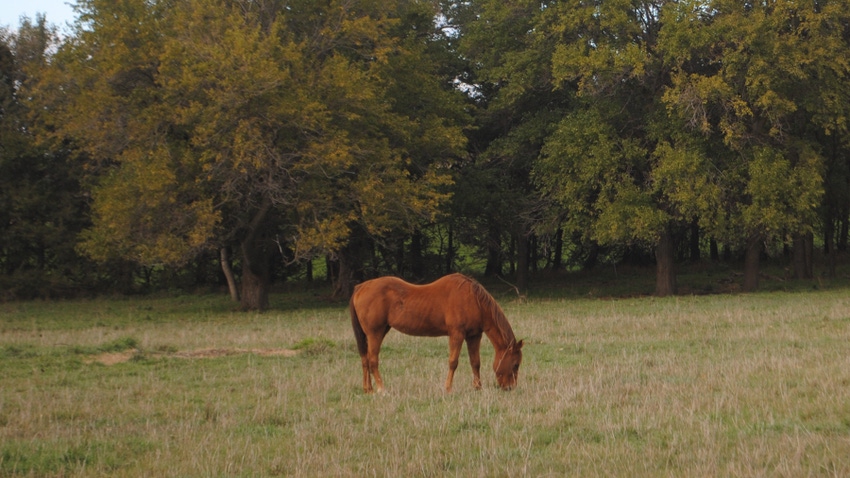
“If I had a dollar for every time I’ve heard a parent say, ‘We’re going to get a younger horse so our kid and our horse can grow up together,’ I would be rich,” says Jan Schiferl, who trains horses and riders in Nebraska. “We would always be the ones to say, ‘Go with an older horse, maybe something that can’t do its original job, but can still carry a young person and can teach the young rider.’”
Schiferl, who operates WJ Ranch and Riding Arena with her husband, Greg, near Fordyce, Neb., just south of Yankton, S.D., hosts horsemanship clinics, private lessons and colt starting. The Schiferls and their adult children have worked with horses their entire lives, so they have expertise when it comes to consulting young riders and their families looking for a 4-H or FFA project horse, or thinking about buying their first horse.
“Some people are insulted when we suggest an older, experienced horse for a young rider or 4-H’er,” Schiferl says. “Yes, an older horse requires more work sometimes — more farrier work, dental work and specialized feed, but you have to be willing to make that investment.”
Being a horse owner is a big responsibility. Of course, there are ranchers with hundreds of working horses in their care. But for a young 4-H member, selecting the right horse, owning or leasing a project horse, and caring for a horse can be daunting. Among all of those tasks, selecting the right horse for their goals and purposes is the crucial first step, Schiferl says.
Lena Luck, Nebraska Extension youth equine specialist, offers tips and factors to consider when young riders are selecting their first horse:
Figure out skill level. “What is the youth’s horse abilities and knowledge level?” Luck asks. “This will help in determining what type of horse they would be best suited for.”
Do they have prior experience in managing a horse? “If they are a beginner and this is their first horse, then I recommend that they be sure to work with a knowledgeable 4-H leader who can help them with understanding all the requirements of owning a horse, such as nutrition, health management, hoof care, dental care and good sanitation practices.”
Go for experience. Luck agrees with Schiferl on the type of horse young riders should seek out. “I would recommend that a 4-H’er look for a seasoned, experienced horse to learn on rather than trying to get a young horse that they will learn together,” she says. “Typically, an older horse is going to be calmer and be much better suited for teaching youth.”
Avoid bad habits. Luck says that this is a tough consideration, because sometimes smaller bad habits such as a horse that cribs, might still be worth it if the horse is more experienced, calm and overall is going to be a good teacher for the youth. “However, if the horse is very skittish, or if it bucks or bolts, then I wouldn’t recommend those as habits or behaviors that a youth would want to ignore,” she adds.
Don’t worry about size. Luck says that the size of horse, compared to the age and size of the rider, is not a big concern. “I would be more concerned with getting a safe, sound horse of any size that is going to take care of my youth,” she says. “I have seen tiny kids on giant horses that do just as well as a big kid on a little horse.”
Understand responsibilities. “It’s important to have good leaders and educators who can provide information on how to properly care for a horse,” Luck says. “I also would recommend that a youth rides other horses and learns the basics of equine management and care prior to going out and purchasing a horse,” she explains. “Owning a horse can be a huge responsibility and huge cost that one should be sure that they are ready for prior to owning a horse.”
Schiferl agrees. She believes young riders should take their time learning the ropes. She encourages those who are contemplating a horse purchase to take riding lessons or work with an experienced horse owner, as Luck suggests, before taking the leap to ownership.
“Leasing a horse may also be an option,” Schiferl says. “Owning a horse is a wonderful experience, but it is also a very large responsibility.”
Learn more about horsemanship clinics at WJ Ranch at schiferlswjranch.com. Get more details about Nebraska Extension horse camps, clinics, workshops and webinars at animalscience.unl.edu/horse.
About the Author(s)
You May Also Like






